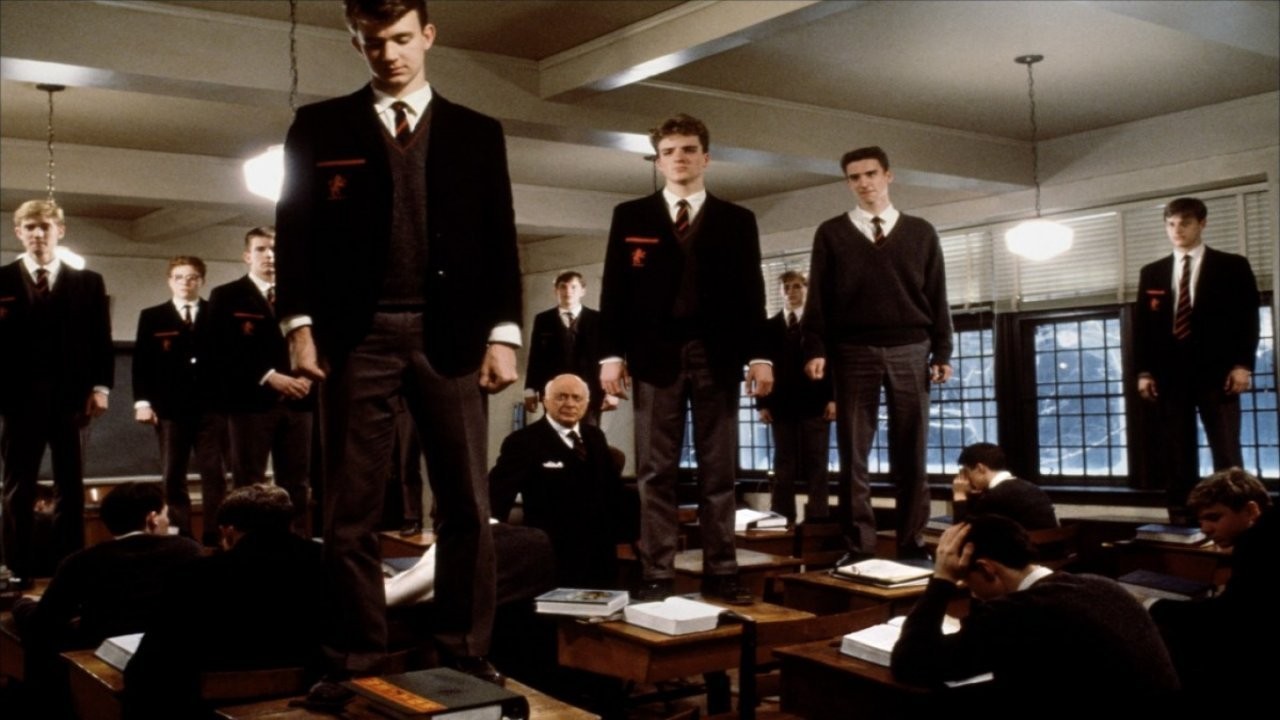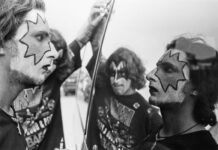It’s always easier to blame others for what is happening in our lives. To pronounce ourselves helpless and alone, while facing a system which tends to transform us into another brick in the wall. But while we nag how society is, we fail to remember that we are society.
No-one objects that a fish rots from the head down, whose head is the millionaires’ who experiment mercilessly with people, as if they are insects.
It’s the politicians who reneged those who elected them, to serve lobbies.
It’ s the intellectuals who isolate themselves in their ivory towers, blind, deaf and mute, like the three monkeys.
~~
But a man’s power to make up their mind to “become the change they want to see in the world” is unharnessed. Most of the times it looks like they sacrifice themselves pointlessly, serving a chimerical purpose.
But if we take a look at human history from a distance, we’ll see that no sacrifice or attempt goes in vain and that our world changes – slowly and torturously – thanks to this one man, any man, who dares to stand on their desk and utter “Oh captain, my captain”.
I am not referring to this wonderful movie of our youth, the “Dead Poets Society”, but to a real teacher, not as funny as Robin Williams for sure, but equally gifted and totally influential on the first-class high school students of a small town.
His name was Papageorgakis. Of the many teachers I met in my life, he is the only one whose name I can still recall.
~~
He was late to be appointed. It was the very first days of October, but the sun this day stupefied us, and we chorused the old known school chant “If we don’t go on an excursion, get ready for school incursion”.
I don’t think that the teachers were intimidated but they took us to the nearby seaside settlement, three kilometers away from our school. There, we saw Papageorgakis for the first time.
A classmate had the blues that day and she was sitting all alone on the beach, casting stones into the sea. An unknown man approached her and began asking her why she didn’t join the other children, if she liked loneliness and the sea and weird things like that.
Kelly thought she had met a freak. She sent him to hell and resorted to the protection of her classmates.
On the way back Kelly spotted the “freak” among the rest of the teachers. The truth spread fast: He was the new philologist of the school; and he was weird – as teachers go.
He bore a great resemblance to Vasilis Kazoulis. His hair was sparse and long, his skull shone under the sun. He wore glasses a la John Lennon, white linen shirt and harem pants respectively. On his shoulder hung a worn-out leather bag. His face was so peaceful and meek that it would have the schoolchildren in stitches, because they would assume that he must just have smoked a joint or two at the beach. We, the newcomers, were looking at him with awe and curiosity, since in our small society we had never seen a man like him.
~~
In my class, unfortunately, Papageorgakis was appointed to teach only history. The very first time he entered the class he greeted us cordially, as a friend I might say – that’s how we felt – and he introduced himself by saying a few things about himself.
After the first shock – since the other teachers used to write their name on the board, believing that we would respect them more – Papageorgakis told us to close our books. We did so obediently – and shaking. The cover of the book showed a statue of the classical period, perhaps Hermes of Praxiteles.
“Take a look at this statue” began Papageorgakis and we all fixed our gaze on him. “Why do you think Praxiteles carved it?”
We thought it was a rhetorical question and he would start reeling off information and dates. But he stood silent.
After a few seconds of unbearable silence, he repeated the question.
The best student in the class (from primary school it was obvious she would succeed) raised her hand and started quoting what the book said about Praxiteles. She had already memorized the first pages.
Papageorgakis asked for her name. Then he thanked her.
“I don’t want you to tell me what the book says”, he told us in such a peaceful manner that we got scared. “I want you to imagine…Imagine that you are Praxiteles and you take on the task of carving a statue of Hermes. Why would you make it like this? So perfect?”
My seatmate, whose voice was heard during breaks exclusively, raised his hand to answer:
“To pay tribute to the gods” he said and then he lowered his head, believing that the teacher would make fun of him and his classmates would laugh at him.
“That’s right” Papageorgakis said.
My seatmate blushed, but a grin cracked his face, feeling proud of himself. I felt so jealous at that moment that I wanted to talk too.
“But why did he opt to make it so…human?” asked Papageorgakis.
More children raised their hand this time. The good students, as always, among them but also some others who were unaware of their own hands and voice.
“Because gods were also human” said a shy girl, accenting the word “human” incorrectly in her hurry. Papageorgakis let it go. She understood it by herself and rephrased: “They were humans, they were just like humans, they had their defects too.”
“What’s your name?” Papageorgakis asked her.
She told him in a low voice.
“Helen”, said Papageorgakis, “this is the most astute answer I’ve ever heard. Well done.”
Tears welled up in Helen’s eyes. Nobody had ever congratulated her in school.
“But why did the ancient Greeks gods have defects?” asked Papageorgakis.
No-one raised their hand this time. This was more than what 12-years-old students could handle. Wrong! Children are much smarter than we allow them to be.
“Every time you ask why”, said Papageorgakis “and every time this ‘why’ is answered, a new ‘why’ results from your answer. No matter how much you learn, no matter how many questions are answered, there will always be a ‘why’ that neither you nor anybody else can answer positively…because that’s the nature of human intellect.”
~~
Since the first meeting with the “freak”-teacher we all became a tad wiser, somewhat more confident about ourselves. We felt like we had entered a new world, totally different from the one of primary school, as if, all of a sudden, we had ceased being children, since someone valued our opinion.
The history lessons kept on being interesting, weird, different. When it was about time to begin, we all couldn’t wait to start. Did I say “all”?
No. The good students, the excellent ones, the flag bearers, couldn’t stand Papageorgakis. Why? Because of him, parrot-learning was of no use.
Plus, there have always been some children that for them school was, one way or another, sheer drudgery.
~~
The children abovementioned were excited when the time came for the first obligatory test. We knew it beforehand, Papageorgakis had informed us many days before, without pointing out anything too important to focus our attention on.
The day that the test would take place, we had already carefully written our cheatsheets; on our hands, desks, slips of paper, concealed in the most unimaginable hideouts.
Papageorgakis gave us the tests and he told us to take the books from our bags. We would give a test with open books! We could refer to them when we wanted to.
We did so as if we were guilty and we pored over the questions of the test. It became clear why books wouldn’t be of any help. We should use our judgment to all questions, just like this famous “why”.
~~
When the time had come for the marks of the first trimester, the excellent students were in tears. Their parents grumbled to Papageorgakis and to the headmaster of the school. Their children hadn’t been awarded 20, the highest of the scale, but with 18 or 19, just like many of the “average” students.
No-one had failed, in other words no-one had got marks below 10, and this – according to the mothers of the excellent students- was unfair, because their children tried harder. Papageorgakis, with the ever-present Buddha’s smile on his face, attempted to comfort the weeping students stressing to them that they had done pretty well. But their mothers didn’t see eye to eye with him.
Rumours had it that the director had a go at Papageorgakis but he remained undaunted to alternative teaching.
~~
Sometime later in the spring, he told us that while he was reading a story, a mouse edged towards him. The mouse told him that he got sick and tired of all these lukewarm stories. It would be better, if only “steeses” existed, that is stories made of cheese. He asked us – Papageorgakis, not the mouse – if we could imagine how a ”steese” might be.
I set out writing the same night. It was a war-story between the soft and hard cheeses.
Influenced by the “Frog-mouse war” that our history teacher had read to us as extracurricular reading, I wrote a comic story with cheeses that used thermo weapons to melt their enemies, mice that were let loose to devour their enemies and Gruyère cheeses that when decapitated were transformed into ordinary cheeses.
Papageorgakis was thrilled with my story and read it aloud to the class. For a child that was not an excellent student, not by a long chalk, and his self-confidence was inversely proportional to his weight – in other words a fat and average student – this “public” reading was something like a Nobel Prize.
~~
The school year came to an end without any sensational event. No student committed suicide, Papageorgakis wasn’t laid off and we spent most of our time concealing our blackheads, playing pacman and masturbating while watching black and white commercials.
Papageorgakis never taught in our school again and nobody bothered to track him down.
Adolescence is a very difficult age, nothing but yelling and fantasies.
Now that my child began going to school, I hope he will have the chance to meet a teacher like Papageorgakis. Or somebody like the inspiring teacher in a village in Crete (I’m sorry but I can’t recall your name). Or someone like my friend Z. from Naxos who pinches – mentally speaking – the children to wake up and see what’s going on in the world in which they live.
It’s something that money can’t buy, it’s something that only the educator can do with love. To teach children that “imagination is more important than knowledge” and that all of the students – even the “average” or the “bad” ones – are worthy. They are important, as long as they are not afraid of asking: “Why?”
~~~~~~~~~~~~~~~~~~~~~~~~~
Sanejoker’s Facebook page:
https://www.facebook.com/sanejoker/
Translated by Alexandros Mantas:
https://open.spotify.com/track/0ZF6gbwf8EHxhsKSRUVP3l?si=ace08d709a524b7d
Edited by Jackie Pert









